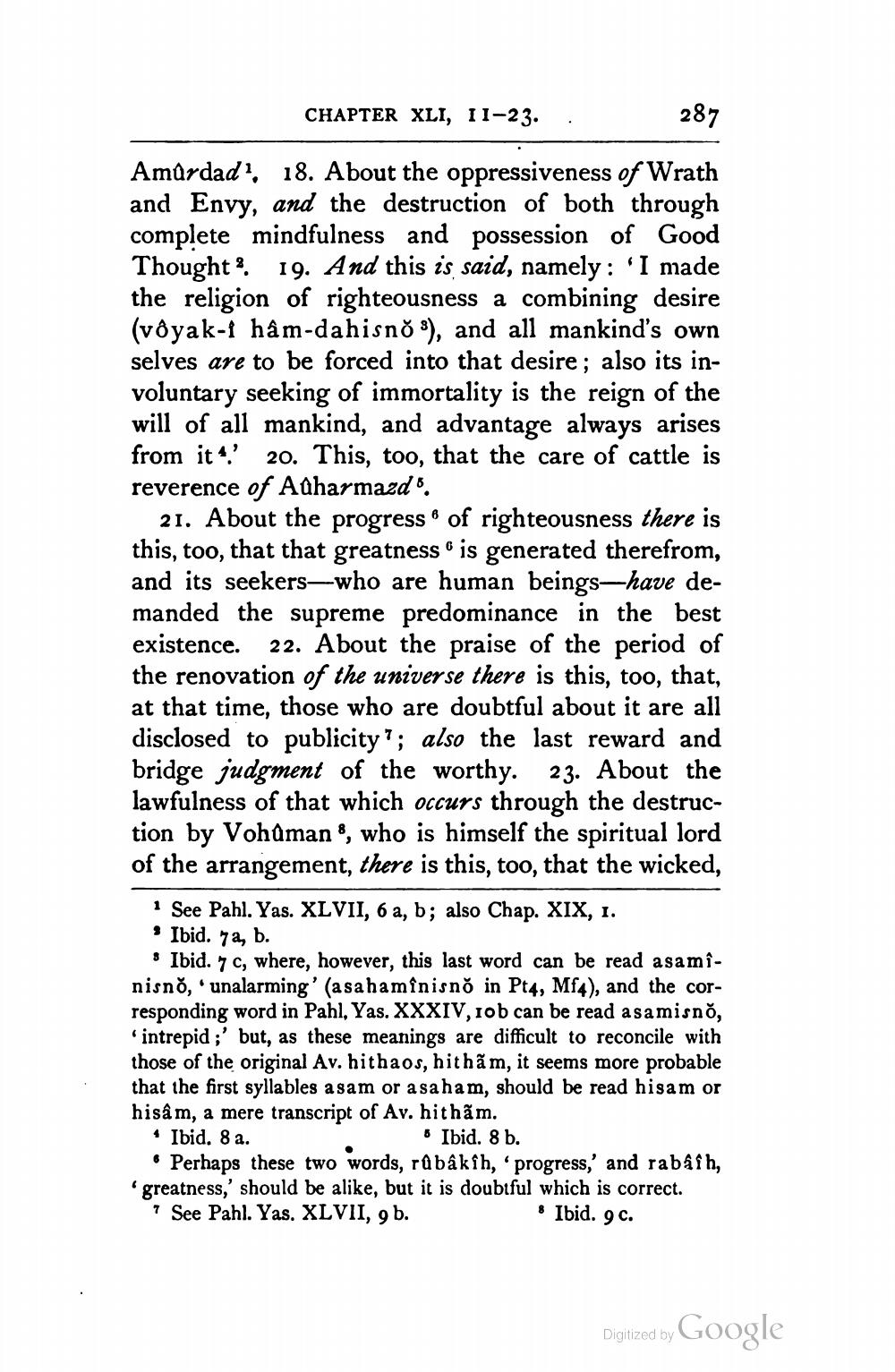________________
CHAPTER XLI, 11-23..
287
Amūrdadı, 18. About the oppressiveness of Wrath and Envy, and the destruction of both through complete mindfulness and possession of Good Thought s. 19. And this is said, namely: 'I made the religion of righteousness a combining desire (vôyak-f hâm-dahisnos), and all mankind's own selves are to be forced into that desire; also its involuntary seeking of immortality is the reign of the will of all mankind, and advantage always arises from it4' 20. This, too, that the care of cattle is reverence of Adharmazd6.
21. About the progress of righteousness there is this, too, that that greatness • is generated therefrom, and its seekers—who are human beings-have demanded the supreme predominance in the best existence. 22. About the praise of the period of the renovation of the universe there is this, too, that, at that time, those who are doubtful about it are all disclosed to publicity?; also the last reward and bridge judgment of the worthy. 23. About the lawfulness of that which occurs through the destruction by Vohaman, who is himself the spiritual lord of the arrangement, there is this, too, that the wicked,
* See Pahl. Yas. XLVII, 6 a, b; also Chap. XIX, 1. • Ibid. 7a, b.
• Ibid. 7 C, where, however, this last word can be read asaminisno, unalarming' (asa hamînisno in Pt4, Mf4), and the corresponding word in Pahl, Yas. XXXIV, 10b can be read asamisno,
intrepid;' but, as these meanings are difficult to reconcile with those of the original Av. hithaos, hithăm, it seems more probable that the first syllables a sam or asa ham, should be read hisam or hisâm, a mere transcript of Av. hithăm. • Ibid. 8 a.
Ibid. 8 b. . Perhaps these two words, rûbâkih, progress,' and rabai h, greatness,' should be alike, but it is doubtful which is correct. ? See Pahl. Yas. XLVII, 9 b.
* Ibid. 9 c.
Digitized by Google




